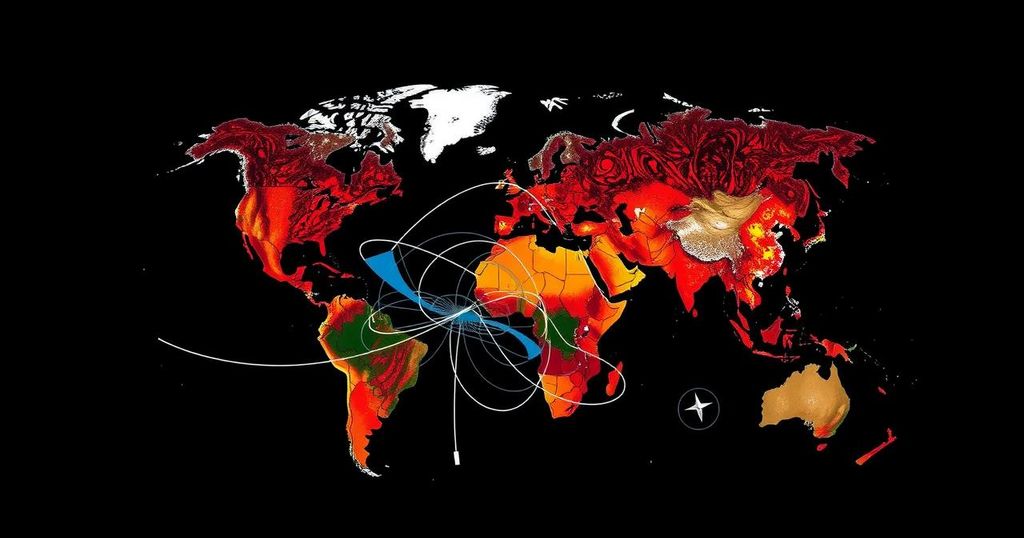United Nations officials warn that the rise of disinformation regarding climate change threatens the COP29 climate talks by undermining science-based decision-making. The UN is implementing initiatives with member countries to combat misleading information and strengthen climate action. Noteworthy figures in climate advocacy express concerns over the role of social media in spreading disinformation, emphasizing its impact on public perception and political outcomes related to climate policy.
The proliferation of disinformation regarding climate change poses a significant threat to global climate initiatives, particularly the upcoming COP29 talks, as asserted by United Nations officials. During a press conference in Baku, Martina Donlon, head of the climate section of the UN’s department of global communications, emphasized that the dissemination of misleading information has become an urgent concern. This ongoing initiative aims to counteract various forms of disinformation, including climate denial, greenwashing, and harassment of climate scientists, with participation from multiple nations and organizations.
The UN’s efforts to address climate disinformation emerged from a commitment established in the Global Digital Compact, which urges member states to evaluate the impact of misleading information on sustainability goals. In previous conferences such as COP27, the fossil fuel industry utilized disinformation to impede climate agreements, a pattern that may continue to affect future negotiations. Respected figures in climate advocacy, like Alex Murray from Climate Action Against Disinformation, noted the detrimental impact of disinformation campaigns led by influential actor groups.
Critical voices, including Michael Mann, a climate scientist from the University of Pennsylvania, have pointed to high-profile individuals, such as Elon Musk, as enablers of disinformation dissemination via platforms like Twitter. The prevalence of climate denial is fueled by a mix of key social media influences, resulting in a significant transformation of public narratives surrounding climate science.
Furthermore, disinformation not only exacerbates public confusion about climate issues but also threatens political stability, thereby affecting global climate negotiations. Sean Buchan, a researcher with Climate Action Against Disinformation, stated that such misleading content serves to create apprehension concerning negotiations and influences political outcomes by elevating leaders who resist climate action.
Attempts to tackle climate misinformation include boosting media literacy, advocating for transparent practices on social platforms, and promoting funding for quality climate journalism. Donlon stressed the importance of understanding how disinformation spreads in order to design effective countermeasures. With reports indicating that significant media outlets contribute to climate misinformation, it is imperative to recognize and combat these trends that hinder effective climate action on a global scale.
Disinformation surrounding climate change is a growing concern that threatens the integrity of international climate negotiations. The spread of false narratives regarding climate science undermines the efforts of scientific communities and policymakers. The United Nations is taking proactive measures to address these challenges through an initiative which involves member states and various organizations dedicated to upholding the scientific consensus on climate issues. The influence of social media and misinformation campaigns has surfaced as a critical barrier in advancing global climate agreements, particularly as the world prepares for significant summits like COP29.
The escalation of climate disinformation has emerged as a pressing issue that can significantly obstruct climate action and undermine the integrity of international negotiations. The United Nations and various stakeholders are actively working to address this challenge through collaborative initiatives and research. As disinformation continues to proliferate, it is vital to bolster public understanding and support for credible scientific research related to climate change, thereby ensuring effective action against one of the most critical global challenges of our time.
Original Source: www.nationalobserver.com






